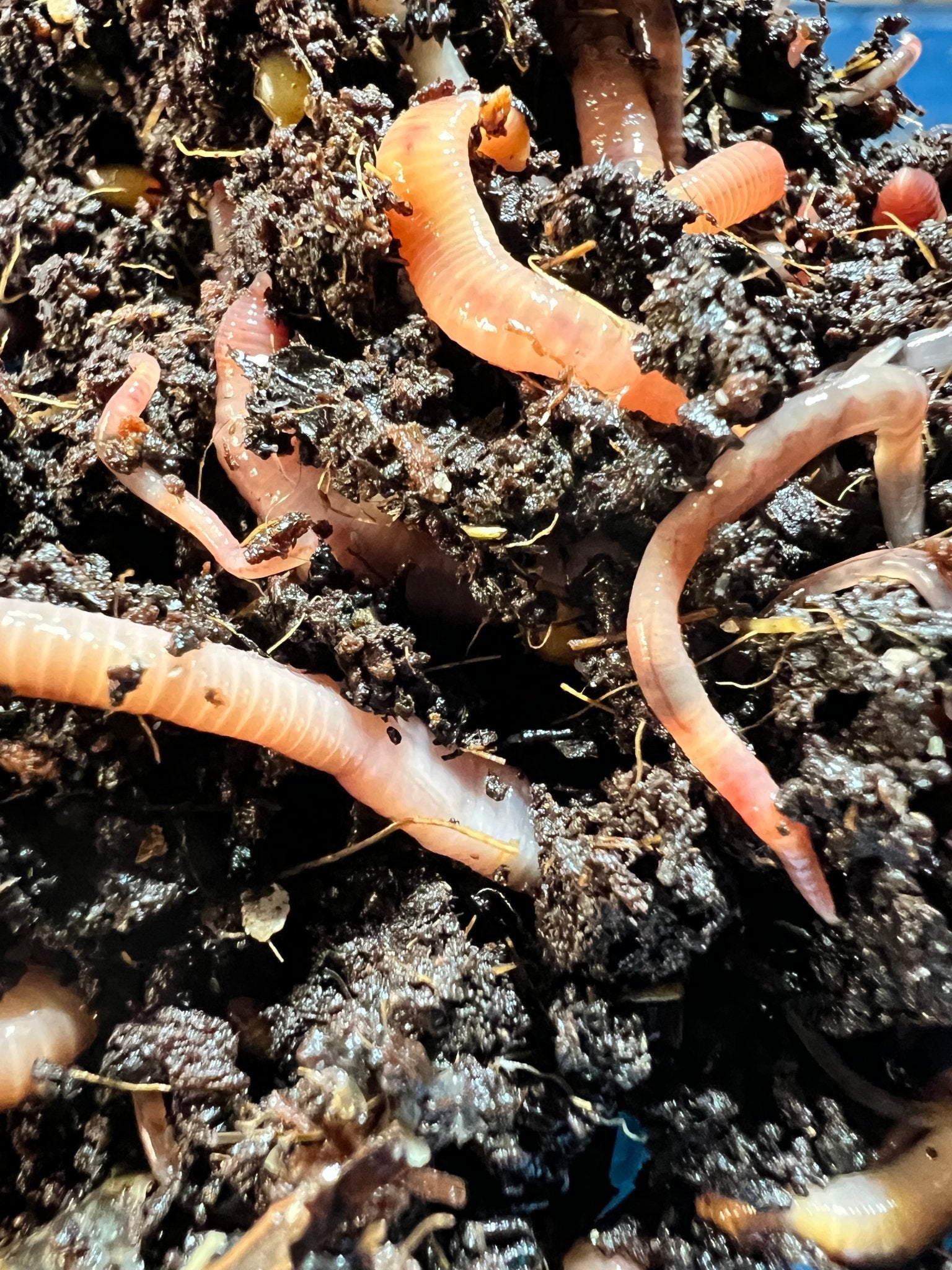Organic Composting with Red Wiggler Worms - Increase Your Yard's Development
Organic Composting with Red Wiggler Worms - Increase Your Yard's Development
Blog Article
Red Wiggler Worms Demystified: Opening the Tricks of Vermiculture for Greener Living and Nutrient-Rich Soil
In the realm of lasting practices for enhancing soil top quality and promoting eco-conscious living, red wiggler worms play an essential yet typically overlooked function. Red Wiggler Worms. Understanding the intricacies of caring for these worms, maximizing their environment, and utilizing their spreadings can lead to a greener lifestyle and much healthier soil for plants to thrive.
The Function of Red Wiggler Worms
Red Wiggler worms play an essential function in composting systems by effectively damaging down raw material right into nutrient-rich spreadings. These voracious eaters take in a selection of organic materials, such as kitchen area scraps, yard waste, and paper products. As they feed, the worms' digestive system processes break down the raw material right into a penalty, dark, and nutrient-dense material called worm spreadings or vermicompost.
The spreadings generated by Red Wiggler worms are highly helpful for soil health and wellness and plant development. They are abundant in important nutrients like nitrogen, potassium, and phosphorus, which are important for supporting healthy and balanced plant growth. In addition, worm castings consist of valuable microbes and enzymes that aid boost dirt framework, boost water retention, and improve nutrient uptake by plants.
Advantages of Vermicomposting

It improves dirt structure, enhances soil aeration, and raises soil wetness retention. Vermicompost additionally enhances the dirt with vital nutrients like potassium, nitrogen, and phosphorus, advertising plant development and general dirt fertility.
Additionally, vermicomposting supports lasting horticulture techniques by offering a all-natural and chemical-free option to artificial fertilizers. Red Wiggler Worms. This ecologically friendly technique not just improves the dirt but also assists reduce reliance on unsafe chemicals, promoting a greener and more sustainable way of gardening
Establishing Up a Worm Bin
When establishing a worm bin for vermicomposting, appropriate configuration is crucial to ensure the success of the composting process. The primary step in establishing up a worm container is choosing an appropriate container. This can be a plastic container or wooden box that gives adequate room for the worms to relocate about and has correct water drainage openings to protect against waterlogging. Next off, a bed linens product such as shredded newspaper, cardboard, or coconut coir ought to be added to the bin. This bedding provides a comfortable setting for the worms and aids preserve wetness levels.
After adding the bed linen, present the red wiggler worms to the bin. It is recommended to start with a handful of worms and slowly boost as they increase. The worms must then be provided with food scraps such as vegetables and fruit peels, coffee grounds, and eggshells. It is important to stay clear of adding meat, dairy, oily, or salted foods to avoid attracting pests why not try here and developing unpleasant smells.
Regularly check the dampness levels and temperature in the worm bin to make sure optimal problems for the worms. With appropriate setup and upkeep, the worm bin will effectively transform natural waste into nutrient-rich garden compost for your plants and garden.
Collecting Worm Castings
To successfully accumulate nutrient-rich worm castings from your vermicomposting system, a methodical discover this harvesting approach is essential. When it comes time to gather the worm spreadings, there are a couple of vital steps to comply with to make certain a successful process.

Troubleshooting Common Issues
Identifying and dealing with typical obstacles that might emerge throughout the vermicomposting procedure is critical for keeping a effective and healthy and balanced worm container. One common issue that vermicomposters experience is overfeeding. Including excess food scraps can cause a buildup of wetness and acidity in the worm container, possibly hurting the worms. To avoid this, feed the worms in moderation, ensuring that the food scraps are adequately broken down prior to including extra. An additional concern is unpleasant odors emanating from the worm container. Foul scents indicate anaerobic problems, typically triggered by overwatering or insufficient ventilation. To remedy this, readjust the wetness levels by including dry bedding materials special info like shredded newspaper or cardboard and increase oygenation by turning the bed linens regularly.
In addition, if the worm populace is declining or the worms show up unhealthy, maybe due to ecological stress factors such as extreme temperature levels or pH levels. Monitoring these aspects and making necessary modifications is essential for the wellness of the worms. By repairing these common concerns promptly, vermicomposters can guarantee a smooth and effective vermicomposting process while keeping a thriving worm populace.

Final Thought
In conclusion, red wiggler worms play a crucial function in vermiculture by breaking down organic issue right into nutrient-rich soil. Establishing up a worm container is crucial for effective vermiculture, and harvesting worm castings gives useful compost for gardening.
As they feed, the worms' digestive system procedures break down the organic issue into a fine, dark, and nutrient-dense material known as worm castings or vermicompost.
The castings generated by Red Wiggler worms are extremely helpful for soil wellness and plant development. Adding excess food scraps can lead to a build-up of wetness and acidity in the worm container, potentially damaging the worms.Furthermore, if the worm populace is decreasing or the worms appear undesirable, it might be due to environmental stress factors such as extreme temperature levels or pH levels. Establishing up a worm bin is important for successful vermiculture, and gathering worm castings supplies valuable garden compost for gardening.
Report this page